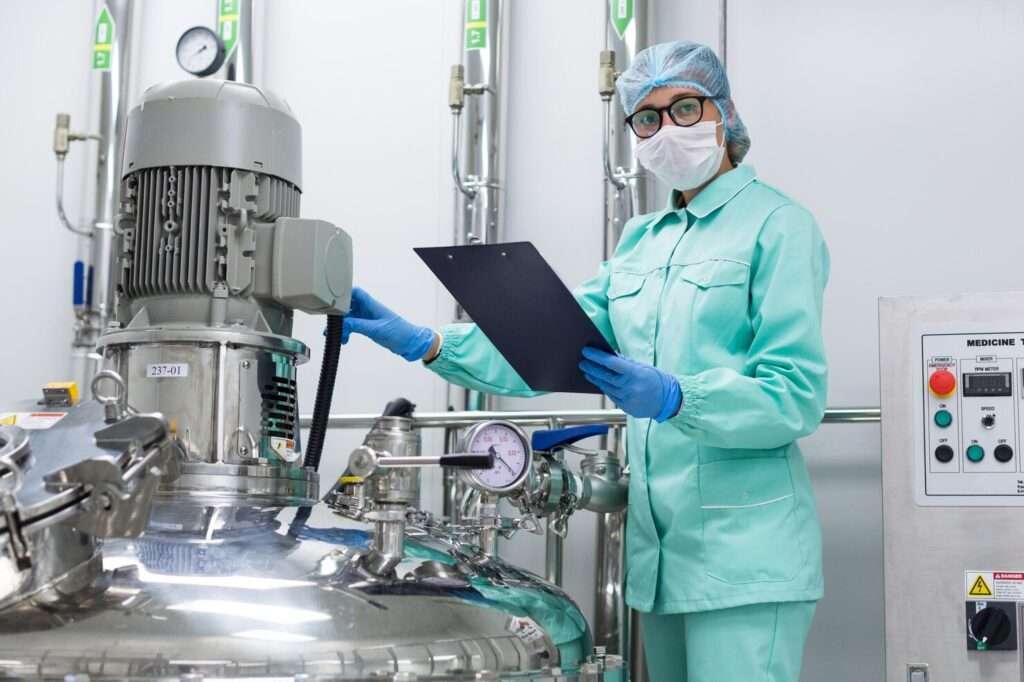Installing equipment in pharmaceutical plants is a critical and challenging step in the production process. Poor installation can lead to delays, costly mistakes, and even regulatory compliance issues. This is where Pharma Project Management Consulting Services (PMC Services) come into play. By ensuring precise planning, monitoring, and execution, PMC experts guarantee that every piece of equipment is installed efficiently and safely.
In this post, we’ll explore how pharma consultancy companies streamline equipment installation in pharma plants, prevent errors, and boost overall operational efficiency. Whether you are planning a new pharmaceutical facility or upgrading existing equipment, this guide will provide actionable insights into the role of PMC services in ensuring smooth installation.
Understanding the Role of PMC in Equipment Installation
Before diving into the processes, it’s essential to understand what project management consulting services in pharma actually do.
PMC teams act as a bridge between equipment suppliers, contractors, and pharmaceutical companies. They manage the entire project lifecycle—from planning and procurement to installation and validation. Their goal is to ensure that equipment is installed correctly, on time, and within budget, while complying with GMP standards.
Key benefits of PMC involvement include:
- Reduced installation errors
- Minimization of downtime
- Streamlined coordination between teams
- Compliance with regulatory standards
Step 1: Detailed Planning and Equipment Layout Design
Proper planning is the foundation of any successful equipment installation in pharmaceutical plants. PMC services begin by reviewing the facility layout and designing a plan for the placement of each machine.
How PMC ensures effective planning:
- Site Assessment: Inspect the plant area to identify space constraints, electrical connections, and utilities.
- Equipment Layout Optimization: Ensure equipment placement maximizes workflow efficiency and safety.
- Installation Timeline Creation: Develop a realistic schedule, avoiding conflicts with other ongoing projects.
Step 2: Procurement and Vendor Coordination
Once planning is complete, the next step is managing procurement and coordinating with vendors. Poorly managed deliveries or substandard equipment can disrupt the entire installation process.
PMC services handle this by:
- Vendor Evaluation: Ensuring equipment suppliers meet quality standards and delivery timelines.
- Procurement Tracking: Monitoring orders, shipment schedules, and customs clearance if required.
- Technical Specifications Verification: Confirming that equipment meets GMP, FDA, and WHO requirements.
This ensures that your pharmaceutical plant receives high-quality equipment on schedule, avoiding costly delays.
Step 3: Pre-Installation Checks
Before actual installation, PMC teams conduct thorough pre-installation checks. These assessments prevent technical issues from arising during the installation phase.
Key pre-installation steps include:
- Structural Evaluation: Ensure the floor, walls, and support structures can handle equipment weight.
- Utility Verification: Confirm electrical, water, and compressed air connections are ready.
- Component Inspection: Check all equipment parts for damage or missing components.
Pro Tip: Many pharma plants overlook pre-installation checks, leading to post-installation downtime. PMC services help avoid such pitfalls.
Step 4: Supervised Installation Process
With planning and checks completed, the actual equipment installation begins. PMC professionals supervise every step to ensure precision and adherence to standards.
Installation supervision involves:
- On-Site Coordination: Aligning teams from vendors, contractors, and internal staff.
- Step-by-Step Guidance: Following manufacturer guidelines and GMP requirements for each machine.
- Safety Monitoring: Ensuring all safety protocols are followed to prevent accidents.
Step 5: Testing and Commissioning
Once the equipment is installed, it undergoes rigorous testing and commissioning. This is a critical phase where PMC services verify that the machinery operates as intended and meets regulatory standards.
Key actions during testing:
- Operational Testing: Confirm machines function correctly under different conditions.
- Calibration and Adjustment: Ensure precision in production parameters like temperature, speed, and pressure.
- Validation Documentation: Record all test results for regulatory compliance.
By managing this phase meticulously, PMC services prevent costly errors and ensure smooth production startup.
Step 6: Staff Training and Knowledge Transfer
Even with perfect installation, equipment misuse can cause downtime or regulatory violations. PMC services bridge this gap by training plant staff on proper operation, maintenance, and troubleshooting.
Training covers:
- Standard operating procedures (SOPs)
- Safety and compliance protocols
- Preventive maintenance practices
This ensures that your pharma plant runs efficiently long after installation is complete.
Advantages of Using PMC Services for Equipment Installation
Engaging a pharma consultancy company for equipment installation comes with multiple advantages:
- Reduced Risk of Errors: Experienced PMC professionals foresee and prevent potential issues.
- Time and Cost Efficiency: Streamlined installation and vendor coordination save money and reduce project timelines.
- Regulatory Compliance: PMC ensures all equipment meets GMP, FDA, and WHO standards.
- Seamless Communication: PMC acts as a single point of contact, improving coordination among teams.
- Enhanced Production Efficiency: Optimized layout and equipment integration boost overall plant productivity.
Best Practices for Pharma Equipment Installation
To maximize the benefits of PMC services, consider these best practices:
- Conduct a comprehensive site survey before installation.
- Select PMC services with proven experience in pharma plant projects.
- Maintain a detailed equipment checklist and installation schedule.
- Document all steps for regulatory audits.
- Regularly update staff training programs.
FAQ : PMC Ensures Smooth Equipment Installation in Pharma Plants
Q1: What is the role of PMC in pharmaceutical plants?
A: PMC manages the end-to-end project, including planning, installation supervision, testing, and staff training, ensuring smooth equipment setup and regulatory compliance.
Q2: How does PMC reduce installation errors?
A: By conducting pre-installation checks, coordinating vendors, and supervising installation steps closely, PMC prevents mistakes and operational delays.
Q3: Why is staff training important after installation?
A: Proper training ensures operators use equipment correctly, maintain safety standards, and adhere to SOPs, preventing downtime and compliance issues.
Conclusion
Smooth equipment installation is essential for the operational success of pharmaceutical plants. Engaging a reliable Pharma Project Management Consulting Services (PMC) ensures precise planning, expert supervision, compliance with GMP standards, and staff readiness for optimal equipment use.
If you want to avoid costly delays, ensure regulatory compliance, and improve production efficiency, consulting a professional pharma consultancy company is the key.
Connect with our expert team at JD Pharma Consultant today to streamline your pharma equipment installation and achieve flawless operational efficiency.



